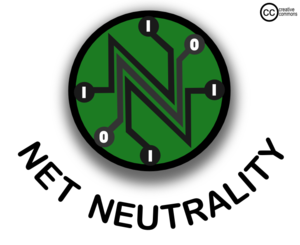 Well, that didn’t take long, did it? Within two weeks of the departure of former FCC Chairman Wheeler, the newly instated Chairman Pai has wasted no time instituting abandoning one of the outstanding items from the previous administration. On Friday, February 3rd, Chairman Pai announced that he would no longer continue the investigation into the zero-rating practices of broadband providers.
Well, that didn’t take long, did it? Within two weeks of the departure of former FCC Chairman Wheeler, the newly instated Chairman Pai has wasted no time instituting abandoning one of the outstanding items from the previous administration. On Friday, February 3rd, Chairman Pai announced that he would no longer continue the investigation into the zero-rating practices of broadband providers.
For those of you unfamiliar with what that means, zero-rating data by a broadband provider means that they don’t apply that data against your limit or fee. This was most famously brought to the public eye when T-Mobile decided that certain streaming services like Netflix, YouTube, Spotify, and Pandora would be zero-rated on people’s data plans.
When the Open Internet Rules went into place, there was a point made that discussed the possibility of zero-rating data as being something that would need be evaluated for the legality of it. There’s a reason that the FCC didn’t know what to do about it because by the letter of the law, zero-rating data abides by the Open Internet Rules; the traffic gets from the edge service provider to the subscriber across the broadband service provider’s network. However, it seems to be another of the gaping loopholes in the Open Internet Rules.
By zero-rating data, broadband service providers are keeping with the Rules, but not with the intention of the rules. These services are no longer being treated equally by the broadband service provider because the data, while getting where it needs to go, is being given preferential treatment. This might not seem like a big deal to some and it might seem like it would benefit consumers, particularly low income consumers, as many have stated, but it sets a dangerous precedent.
 First, this means that the broadband service providers are opening up a potential conflict with the Rules because they are the ones that are choosing which services are zero-rated and which aren’t. It also means that if a service not being given this zero-rating plan wants to get a zero-rating, there’s no clear path to be included in this exclusive group. Perhaps payment to the broadband service provider? But that would be in direct violation of the Open Internet Rules’ paid priority ban.
First, this means that the broadband service providers are opening up a potential conflict with the Rules because they are the ones that are choosing which services are zero-rated and which aren’t. It also means that if a service not being given this zero-rating plan wants to get a zero-rating, there’s no clear path to be included in this exclusive group. Perhaps payment to the broadband service provider? But that would be in direct violation of the Open Internet Rules’ paid priority ban.
The thing about opening up a conflict with the Rules, though, is the fact that the FCC has to be willing to enforce them. Given that Commissioner Pai was against the Rules when they were approved, I find it extremely unlikely that the commission will enforce any conflict that isn’t a direct and blatant violation.
Second, this is a short sighted vision that lends itself to the Chairman Pai’s trend. Admirably, his biggest focus has always been on broadband expansion so that every person has the opportunity to access services. However, his methodology of doing so is to naively believe that the broadband services wish to each expand into as many markets as possible; which has been proven to be false by the fact that the non-mobile carrier broadband providers have divided up the country and generally stayed away from intruding on competitor’s turf.
Pai is focusing his attentions on incentivizing them to expand their networks, but that won’t explore the issues that arise when it comes to zero-rating data. So, let’s play this out. Let’s say that all broadband service providers agree that the biggest network hogs of traffic (Netflix, YouTube, and Hulu being the most common) will all be zero-rated data on your plans. Consumers applaud this because it means that their most commonly used data hogging services won’t be causing massive increases in their monthly plans with overages and they won’t suffer data cap problems. But the precedent this sets is that at any point in time, not only can the broadband network add other services to zero-ratings, they can also remove them. Your contract with these providers will start to include the provision for what services will be zero-rated and the duration for which that will apply.
By not continuing to explore the effects of zero-rating, the FCC has elected to say that the broadband service providers get to alter the Rules and provide preferential treatment to the edge service providers as they see fit. But as there is no regulation to protect the consumers when the broadband service providers change their mind, the consumers are trusting these corporations not to change the agreement tomorrow, the day after, the month after, or even a year after signing up for a multi-year contract.
The FCC under Pai will not be a government agency out to protect consumers. It will be an agency that will be hell bent on trying to find ways to incentivize corporations through reduced regulation and a variety of other programs to support the belief that everyone having a connection will be good enough, regardless of whether or not the information available through that connection will be treated equally.


